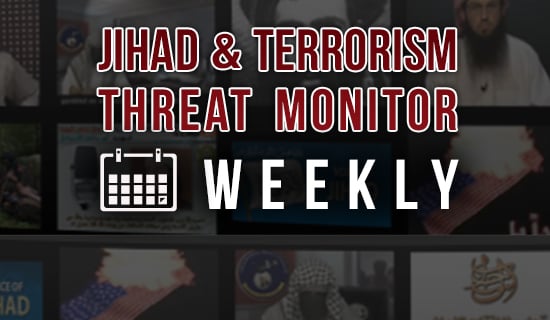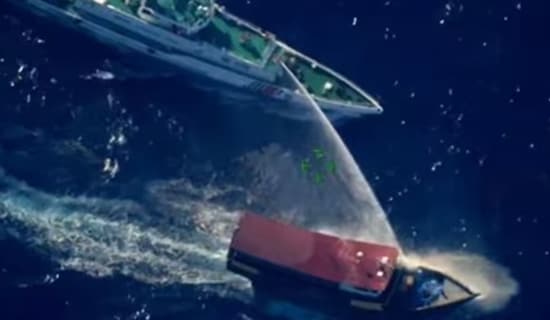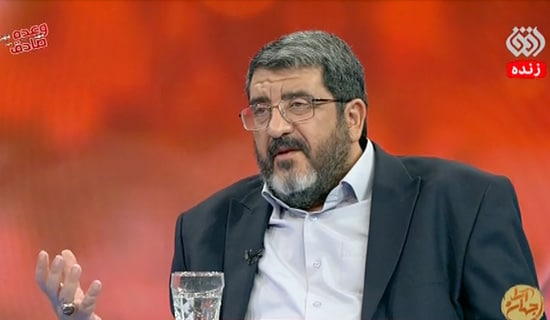In his April 24, 2024 column in the London-based daily Al-Sharq Al-Aswat, the daily's former editor, senior journalist Tariq Al-Homayed, addresses the plan of the European Union to impose additional sanctions on Iran, focused on this country's drone and missile industry. He writes that these sanctions, which come in response to Iran's direct attack on Israel, are intended to assuage Israeli security concerns, but are not geared to produce long-term stability by targeting the most blatant danger facing the region – namely the Iran-backed militias that threaten all of the Arab countries. Al-Homayed notes that, in Syria, for example, Iranian militias control the Syria-Lebanese border; in Lebanon Hizbullah, by means of its weapons, is paralyzing the country and crippling its institutions, turning it into a "mafia state"; in Yemen the Houthis have embroiled the state in a foreign crisis in order to serve Iranian interests, destroying the country and disrupting global trade; in Iraq, the Iran-backed militias are likewise growing dominant, and in Libya Iran-backed forces are stoking a crisis that threatens not only Libya itself but also the security of the European countries.
Al-Homayed concludes that the Arabs must adopt a collective stance, and take part in formulating an "Arab-American-European plan to deal with all of this. The threat of militias," he adds, "must be our primary concern in every forum. There is no moderate Arab state that does not have Iranian militias on its borders, and that is dangerous. It should be a red line."

Tariq Al-Homayed (Image: Marefa.org)
The following are excerpts from his article as published in the English edition of Al-Sharq Al-Awsat.[1]
SUPPORT OUR WORK

"The European Union is discussing the imposition of additional sanctions on Iran following its direct attack on Israel via drones and missiles. The debate is around sanctions on Iran’s production of drones and missiles, as well as industries that make parts for these weapons and assemble them. But is that enough? Certainly not. Moderate Arab states should agree on a shared narrative of rejecting the Iranian militias in our region and their presence on the borders of our countries. I know that this would not be easy, but the alternative is the destruction of Arab states and the notion of statehood in the Arab world.
"The truth is that the United States and the West have not taken action now to impose regional stability, but to prevent a repeat of recent developments and convince Israel to hold off on broader retaliation against Iran. The goal is to defuse tensions, not to create sustainable solutions. That is not equivalent to supporting stability in the region or deterring Iranian expansion. These actions are merely intended to assuage Israeli security concerns, and that is dangerous. Indeed, the priority is safeguarding our moderate countries, as well as what remains of the Arab countries that have been drained, staggered, or paralyzed by Iranian militias.
"Some are failed states, like Syria, where we find American, Russian, and Turkish forces, as well as Iranian occupation through militias like the Fatimiyoun Brigade, the Zainabiyoun Brigade, and Hezbollah. Just a few days ago, our newspaper published an article about how the Syrian-Lebanese border is controlled "by gangs and clans."
"We also have Lebanon, where Hezbollah has gained hegemony through its arsenal, paralyzing the state, crippling the presidency, banks, and judiciary, and turning Lebanon into a mafia state. We see kidnappings, and physical and moral assassinations, with fellow journalists persecuted for flimsy reasons.
"And there's Yemen, where the Houthis’ futile recklessness has disrupted shipping and drawn Yemen into a crisis it has nothing to do with in order to serve Iranian interests. Their actions are pushing the country to the brink of an economic, nutritional, and security collapse. Sudan is in an equally dire position. The situation in Sudan is a crime against the people and what remains of the state. The pretexts are extremely tenuous, and their rebuttals never go beyond blaming everyone and accusing them of being traitors. However, everyone who has taken up arms and waved foreign cards is actually to blame.
"Iraq is another case. The threat of Iranian militias, with the Popular Mobilization Forces at the forefront, becoming dominant is growing. At the same time, Iraq genuinely has the potential to grow, and Baghdad does not need financial support or anything of the sort. All Baghdad needs is the will, political reform, and to place all arms under the control of the central state; the international community and moderate Arab countries could help them do that. This would ensure that decisions of war and peace are made by the Iraqi state, not militias that take orders from Iran and terrorize rational voices in Iraq.
"Of course, there is also Libya, where Turkish and Russian forces, among others, have been deployed, and where the Muslim Brotherhood has played a pivotal role. What is dangerous about what is happening in Libya is that it has implications that go beyond the Arab world. It is impacting European security, especially with the refugee crisis, to say nothing about its repercussions for the notion of statehood.
"This is where we find ourselves today. We must develop an Arab stance, and Arab-American-European plan, to deal with all of this. The threat of militias must be our primary concern in every forum. There is no moderate Arab state that does not have Iranian militias on its borders, and that is dangerous. It should be a red line."
[1] English.aawsat.com, April 24, 2024.




